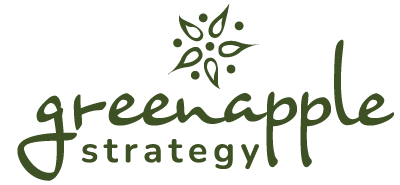When it comes to telling a brand’s story, events are incredibly powerful. A well-planned, well-executed event can gather stakeholders, communicate brand values, and build community connections all over the course of two hours. However, the opposite is also possible. An ill-planned and poorly executed event can strain relational ties, communicate inefficacy, and harm PR efforts.
If you want to support your marketing strategy with an exceptional event, try the following event marketing best practices for an event that can increase brand awareness and bring in new business.
Four Event Marketing Best Practices for Unforgettable Experiences
Set Aside More Time Than You Need
Realistically, how much time do you need to plan, schedule, and run a successful event to promote your business? A week? A month? Six months? A year? Events run the gamut, ranging from sponsoring a local charity gala, throwing a party at a major trade show, or celebrating a groundbreaking with government officials. Green Apple Strategy has helped our clients plan all these events and more — we know how sufficient time can lead to excellent outcomes.
While some events take days or weeks to plan, others require months of collaboration. As a rule of thumb, estimate how long you think it will take and double that amount of time. It’s impossible to start too early. The scope and cost of events tend to expand, and making extra time for unexpected delays is a best practice you won’t regret.
Over-Plan Your Marketing Event
In addition to setting aside sufficient time for an event, we suggest a similar course of action when it comes to organizing and planning an event. Brands new to event planning may assume that it consists of simply listing what you need to do and assigning those duties to different individuals.
In fact, event planning requires lists of materials, vendors, attendees, organizers, and expenses. It also requires sketching out a timeline for choosing, confirming, and paying for all the components of the event. If you don’t have an individual at your organization who specializes in event planning, the responsibility of the event is often placed on team members who already have full-time roles at your company. This can cause stress and strain as people add even more to their already full schedules.
Team Up With an Experienced Marketing Event Partner
To prevent overwhelm and resentment, it’s best to partner with an event marketing agency that has experience planning and throwing large events. Often, a high-level overview is lost when brands try to add event planning to their areas of expertise. Key components, invites, or aspects of the event fall through the cracks, learning to frustration and embarrassment.
Outsourcing your event planning and marketing to an experienced partner places the responsibility on them to keep tabs on the overarching strategy and the on-the-ground details and logistics. Your brand can still retain creative control and assist with idea generation and execution while receiving the support you need to throw the best event possible for your brand, your board, your customers, and your community.
Drum Up Anticipation Through Marketing
Event planning is so complex that advertising, marketing, and PR for the event can fall by the wayside. Leaving marketing for the last minute almost always affects turnout and deliverables, making the event a less powerful vector for brand loyalty and visibility. Instead, marketing and publicity should go hand-in-hand with the process of event planning so that the event can be promoted every step of the way.
Promoting your event means identifying publications and media outlets that should feature your event, reaching out to invitees, sponsors, and community partners who have a stake in your event, and creating a coordinated social media strategy to create anticipation for your event. Sellout events create palpable buzz, interest, and curiosity about brands. (We should know—our sellout event for The Factory at Franklin led to an extensive waitlist invested in future events that is now an engaged email marketing audience.) When it comes to event marketing, there’s no such thing as creating too much excitement.
Let Green Apple Plan Your Next Event
Special events are a powerful tool that can be used to enhance your marketing goals. If you’re ready to use event marketing best practices to build connections while increasing brand awareness, reach out to us for a consultation.
Events are an incredibly powerful part of building a company’s brand story. Here are some of Green Apple’s best practices for a well-planned and well-executed event.


